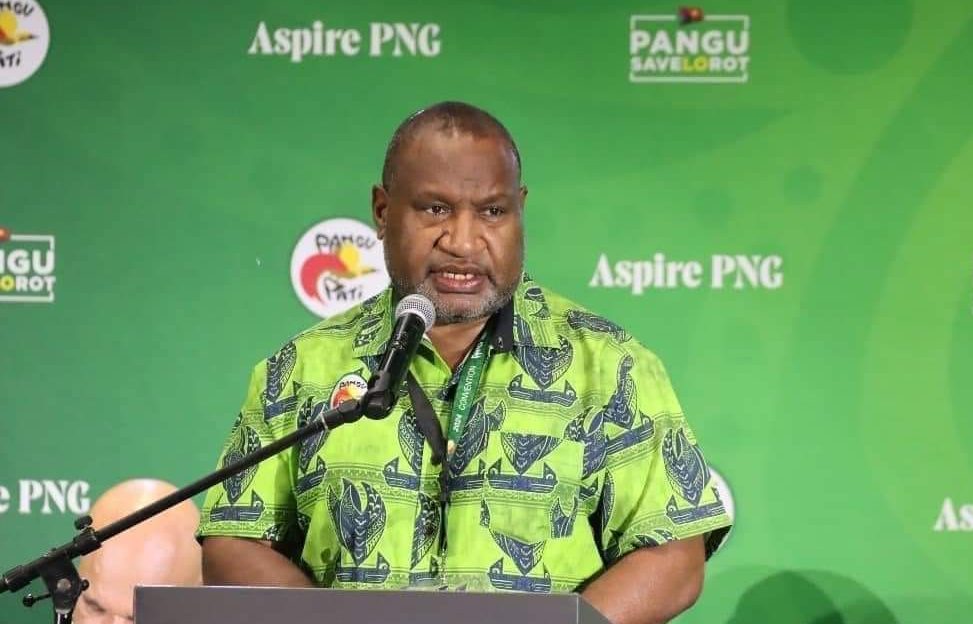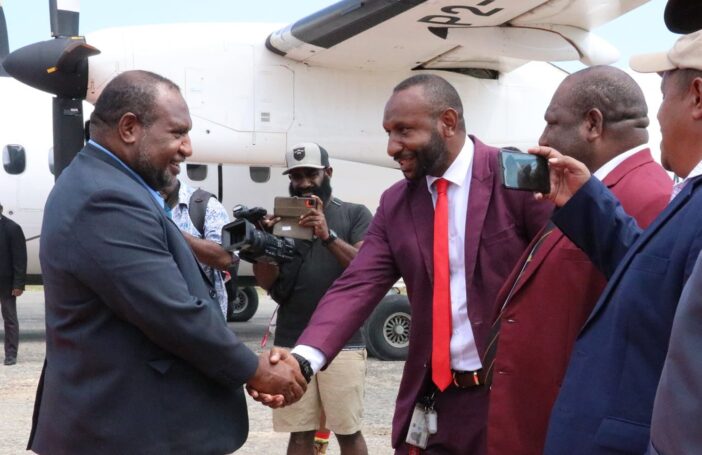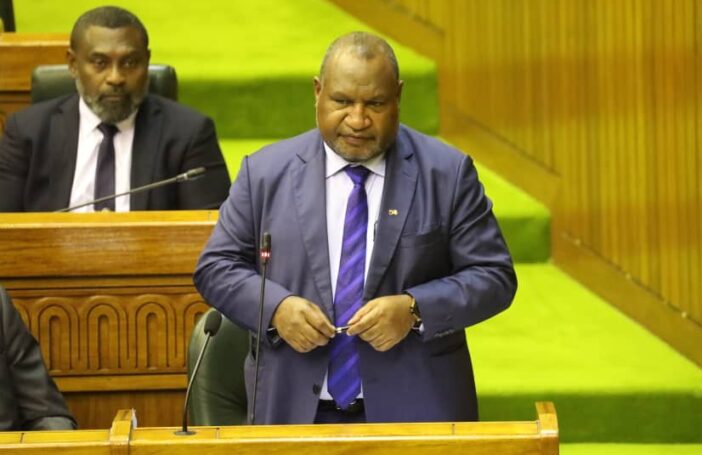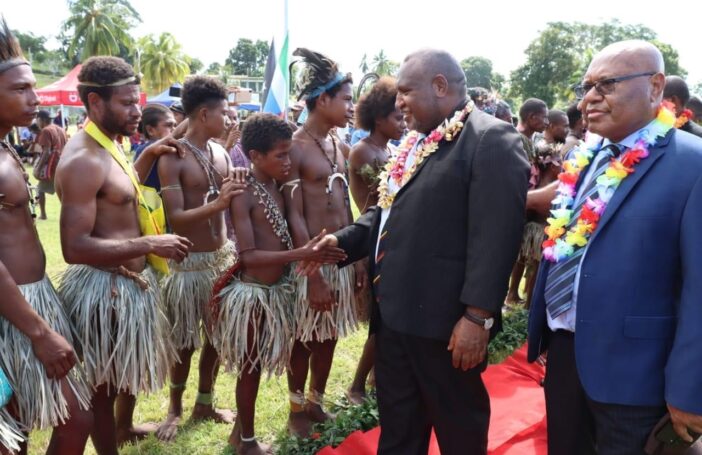Papua New Guinea’s Prime Minister James Marape successfully defeated a vote of no confidence against him on 12 September, with 75 votes in his favour and 32 against, and now parliament has adjourned. So, what comes next? And what’s really behind these votes? In this blog, I explore several what-next scenarios and try to shed some light on the political economy of votes of no confidence in PNG.
First, could there be another vote of no confidence? The 18-month grace period that shields a prime minister after an election does not currently extend to one who survives a vote of no confidence. Marape therefore remains vulnerable to another vote when parliament reconvenes on 26 November. This vulnerability will persist until mid-2026. During the 12 months preceding the general election in 2027, a vote of no confidence is possible, but its effect, if passed, would be to dissolve the parliament rather than replace the prime minister. Since such a dissolution hasn’t occurred in the past 49 years, it is unlikely to happen after mid-2026.
Second, could there be another grace period? The government has introduced a proposed amendment to section 145 of the Constitution relating to votes of no confidence, to give another 18-month grace period to the incumbent if a vote of no confidence is unsuccessful. If the 75 votes Marape just received reflect his overall support, amending the constitution to create this additional grace period isn’t far-fetched. However, PNG laws don’t apply retrospectively. Should such an amendment pass, it would only apply to future failed votes of no confidence, leaving Marape open to at least one more potential challenge in the near future.
Third, might some members of parliament (MPs) return to the government? It’s common in PNG politics for opposition MPs to rejoin the government after a failed vote-of-no-confidence attempt. Between now and the next parliamentary sitting in November, it’s reasonable to expect opposition MPs to return to the government fold. With no immediate vote of no confidence looming, MPs often return for easier access to Constituency Development Funds (CDFs). Given the unsuccessful vote of no confidence and the long gap before the next session, more MPs are likely to trickle back to Marape’s side.
Fourth, could PNG politics be stabilising over time? This marks the second time in less than a decade that a PNG prime minister has defeated a no-confidence vote. In 2016, after several unconstitutional delays, Peter O’Neill also survived such a vote. This stands in contrast to the three successful no-confidence votes from 1980 to 1988. After 1988, three other prime ministers left office for various reasons including invalid elections and resignations, while another was unconstitutionally replaced on health grounds. Two of these resignations were to avoid an imminent vote of no confidence. While only three votes of no confidence have succeeded, votes of no confidence have long been a threat to PNG’s political stability. Now, it seems, the prime minister’s tenure is getting longer despite the volatility of PNG’s politics.
What explains Marape’s and O’Neill’s defeat of votes of no confidence?
There is much speculation about the role of money in securing political support in PNG during votes of no confidence. Proving corrupt payments is difficult. No prime minister or MP has ever faced prosecution for bribery during a vote of no confidence. However, there is a clear correlation between the growth of CDFs and the increase in prime ministers’ tenure. Since their introduction in 1984, these funds have grown from K10,000 per MP to about K10 million today. CDFs have become instrumental in controlling MPs’ behaviour, with opposition MPs often claiming their funds are withheld, delayed, or underpaid.
So, why do votes of no confidence persist?
In PNG, a vote of no confidence is less a mechanism to hold the executive government accountable and more about access to state resources, particularly the CDFs. Claims of wanting to remove a corrupt prime minister seem hollow when one considers that the alternative prime minister in this case was a strong ally of Marape who served in his cabinet until recently. Similarly, many MPs who voted against Marape in this vote had supported him previously, either during his 2019 rise to power or after the 2022 elections. Ironically, some even helped him survive a no-confidence vote in 2021 when the opposition had enough numbers to unseat him.
For MPs, then, votes of no confidence have perhaps become tools to negotiate and renegotiate ministerial portfolios and funding with the prime minister. For the general population, they might still be perceived as a way of temporarily disrupting the mismanagement and waste of state resources if the prime minister is actually replaced. However, the reality is that such votes only worsen governance issues, if the widespread claims of bribery and corruption during vote-of-no-confidence periods are true.
In sum, it could be that votes of no confidence in PNG are now less likely to unseat a PM than in the past – because the prime minister controls more resources, particularly in the CDFs. At the same time, MPs will continue to jockey for access to those resources, so the votes and the related instability and governance problems will continue, if not worsen.





This schematic policy of Constituency Development Funds [CDF] must not be controlled by prime minister. In that way prime minister is taking advantage over MPs to keep them in his side. The MPs must appoint a minister to administer this.
Thanks Natasha.
I just pointed out the potential (and claims) for corruption and bribery during corruption during votes of no confidence. But I wouldn’t say therefore there shouldn’t be votes of no confidence. Because if the trajectory the country is in is not stopped through a VONC, it would get worse.
CDFs should’ve been abolished a long time ago. But lingers on because, among other things, it helps the PM buy support.
We’ve called for either it to be abolished, or at least legislated for that it removes government’s control over it. But again, the government wouldn’t want to lose control of the funding because it would lose the ability to control MPs’ behaviour.
very nice article 🥰👍 ,as a Papua New Guinean I got the points 1:bribery during vonc and also general election?? in my opinion it’s part of selling your birthright. In the Bible story of essau and Jacob. 2: VONC ! why not we change
it to debate like USA presidential elections. However I think the ministry holders and the prime minister as to undertake a course on how to run the country, province, district and how to do their ministerial jobs. For example,a teacher by profession holds health ministerial portfolio how can he/she knows what the health department needs and understand faster to issue funds. if needed ASAP .sometimes the request is critical but it as to go under review and could take another two weeks or more because he has no idea on what is being requested. PNG is and will be going back wards because of politics is being driven into economic downfall of our country.
Great informative article, Michael.
The way I read this is that, it’s actually better to avoid a VONC and allow whoever is in Govt to serve their term to reduce even more corruptive practices.
It doesn’t stop mis(use) of CDF. I don’t completely agree that CDF should be done away with though. If acquittals are not submitted then CDFs should be withheld.
Enforcing the monitoring mechanism to ensure greater accountability, and of course prosecution for non-compliance, should together deter corrupt practices producing a robust governance system and flourishing democracy.